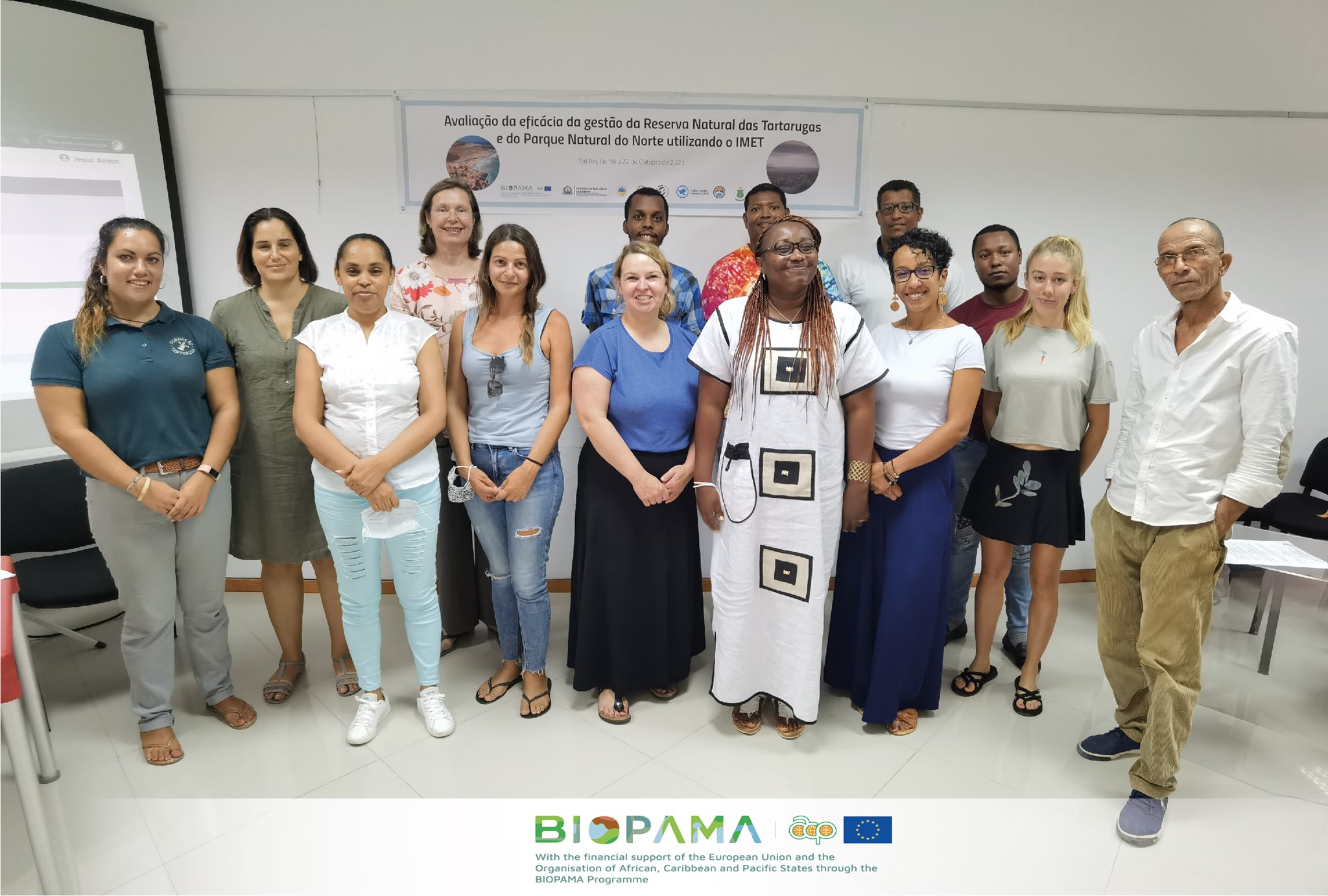

The IMET assessment is a participatory process. Therefore, in preparation for the workshop with the local ministry of environment we tried to identify stakeholders which were representative of all interested parties within the PAs. The workshop included the following stakeholders: Fundação Tartaruga (FT), Ministry of Agriculture and Environment Boa Vista (MAA-BV), BIOS CV, Cabo Verde Natura 2000, Turtle Foundation (TF), Câmara Municipal Boa Vista (CMBV), Society of Tourism Development in Boa Vista and Maio (STDIBVM), Varandinha Association, Port Maritime Institute (IMP), National Police including Maritime Police. Additionally, the national director of environment, the association for tourism operators, fisheries inspectors and further community leaders were invited but did not attend. They were informed that this is a participatory process which will allow everyone's voices and opinions to be heard and recorded in the evaluation. The vote of each representative was given equal weighting and so it was a very inclusive process.
The attendance and contribution of all involved was fantastic. Members could see the idea clearly behind the tool and at the end of the workshop the results were very clear and were representative of the challenges all stakeholders face while interacting with the PAs.
Everyone was invited to participate in the online sessions to understand the process and idea of the evaluation which made the face to face sessions more effective.
Communication between the stakeholders (Portuguese-speaking) and the trainer (English-speaking) was very important.
Inclusivity! In order to make the process accessible to all interested parties we had two translators present at the workshop and have translated all correspondence, reports and presentation to both Portuguese and English. This allowed local people from all different backgrounds to share their ideas and opinions on the management of their local parks and express what they believe should be done.
There is a history of poor relationships between the NGOs on the island, however this process allowed individuals representing the NGOs to be unified in presenting arguments for what they believed should be made a priority in the management of the PAs in terms of species and habitats and the ecosystem as a whole.
There is no one correct answer. An understanding of compromise is also vital in the sense that not everyone can achieve exactly what they want, those stakeholders with contrasting needs, desires or demands were faced with the opportunity to present their case, and their reasons behind it. Those stakeholders placed along the spectrum of contrasting opinion had to decide in which favour to support.